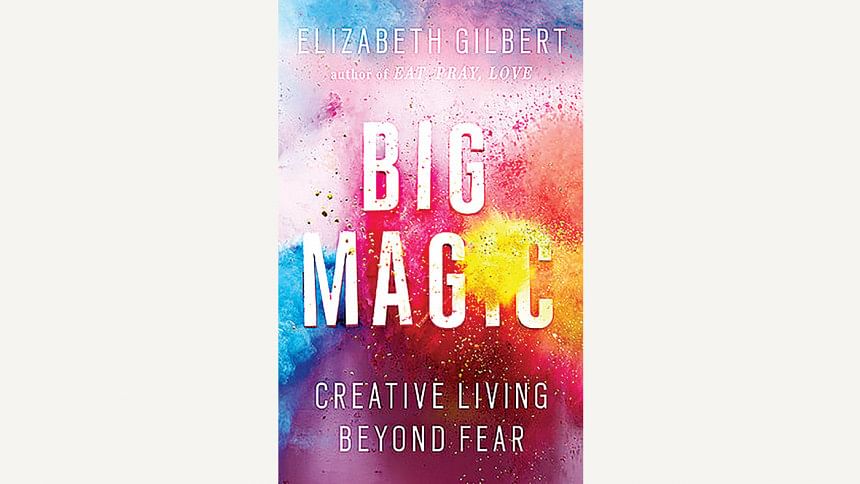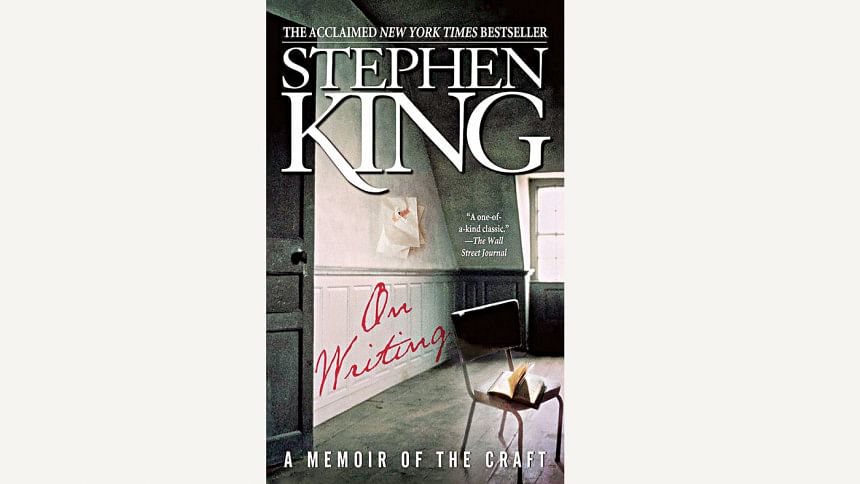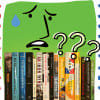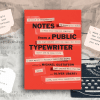Books that reinspire the creative spark

At some point in the life of a writer, there comes a day—perhaps disguised as any other Sunday morning, when the weather is exceptionally pleasant and full of hope for productivity—with plenty of time to brew yourself a cup of coffee before you sit down at your desk to do what you love most: create.
And on this day, when you are almost certain you will complete what you set out to do (hit your word count), you pick up that pen and flip open your notebook, and it hits you.
Emptiness. A resounding blankness that seems to blare with the sounds of static. All words seem to have left you. The vision for your story is nothing more than a faraway thought some version of you had in some other life. It is as though all your inspiration to create was only a thing of the past, belonging to someone who no longer exists.
Writer's block can be caused by a number of things. For some, it can be the feeling of having lost that spark for your current project while for others, it can be the all-consuming feeling of being unable to drag yourself out of bed, sit yourself down and just do the work. Whatever may be the cause, however, it is important to remember that it can be solved, no matter how bleak it may feel right now. So, while moments like these can feel dark and hopeless, I've found solace in a combination of books that I read in the following order that have helped me and, judging by the reviews, thousands of others find a spark when the creative energy in the world seems depleted.
Big Magic
Elizabeth Gilbert
Riverhead Books, 2015
For the dreamer in us, this book is pure magic. Elizabeth Gilbert writes conversationally, making the readers feel as though we are speaking with that artsy aunt who's visiting from Paris, with only one goal in mind: to inspire. Like little treats left for her readers to find, she leaves lessons on how to best cultivate inspiration and creativity sprinkled throughout the pages that are otherwise filled with personal stories and real life anecdotes from both her own life and other creators she has come across—each one coaxing us back to the creative place that is inherently stored in our minds.
Through concepts that redefine a creator's relationship with inspiration, she shows us the process of creation through a refreshing lens of magic. She takes time to shed light on the beauty and the magic of how ideas are born and reminds us that it is up to us, creators, to bring it to life. She humbles us, reminding us that ideas are not for us to own, but simply to serve as a medium to, bridging the gap between vision and reality. She reminds us to stop and smell the roses. To enjoy the writing process, including all its ups and downs. The book serves as a reminder we can all use as we so often forget to enjoy creating once we enter a race of pursuing perfection in our craft.

On Writing
Stephen King
Scribner, 2000
After that wonderful dose of magic, I turn to Stephen King's On Writing.
His book, being a mix of a memoir as well as tips and tricks for the aspiring writer, felt grounded in a reality any one of us can relate to. And I think that's what made it so lovely to read.
90 per cent of the memoir is on his pre-success, giving us a very real insight into the hardships that come with being a writer with no audience. It, to me, served as both a testament of hope as well as a reality check—reminding me of and preparing me for what I'd signed up for. This journey is not easy. There is so much to overcome to be able to just create something that you like—let alone fight the fight to have it presented to the rest of the world. And Stephen King reminds us of just that.
He also serves up a few lessons that are essential for any writer at any stage of their lives. These include some rules of thumb regarding grammar and recommendations of other reading material.
As opposed to the magical, mystical approach Elizabeth Gilbert takes in Big Magic, Stephen King writes with grit and wit. So while Gilbert will help you fall in love with the magic that comes with creation, King will ground you and show you just how you can use all that magic—that to some may feel overwhelming—to achieve what we set out to do, regardless of where we are in life.

The War of Art
Steven Pressfield
Rugged Land, 2002
At this point, having taken a journey through magic and being served with a dose of reality, Steven Pressfield's book takes us through what I think is the last step in this process of getting back into creating.
By now, you should be geared up and ready to go and write, pumped with newfound inspiration and a will to keep you writing. And this book will ensure that inspiration to create remains consistent.
The War of Art teaches you arguably the most difficult aspect of being a creative—to keep at it. And it does so beautifully. Simplifying what to most of us feels impossible, Steven Pressfield's message is to, come rain or hail, sit down every day and work at your craft.
From creators just starting out all the way up to successful ones, discipline and perseverance is always the most difficult to maintain, and most often the defining difference between an expert and a student.
Steven Pressfield discusses concepts of resistance and how much of it stems from within us. He teaches us why it exists and most importantly how to fight it. On the journey to getting right back into creating after having fallen off the wagon. I think this is a good reminder that it is okay to stray from the path and to be reminded of the ways to keep coming right back to it, no matter how many times we get knocked off course.
Syeda Erum Noor is devoted to learning about the craft of writing and is an avid reader who can talk endlessly about the magic of books. To talk to her about either, reach her at s.eru

 For all latest news, follow The Daily Star's Google News channel.
For all latest news, follow The Daily Star's Google News channel. 







Comments